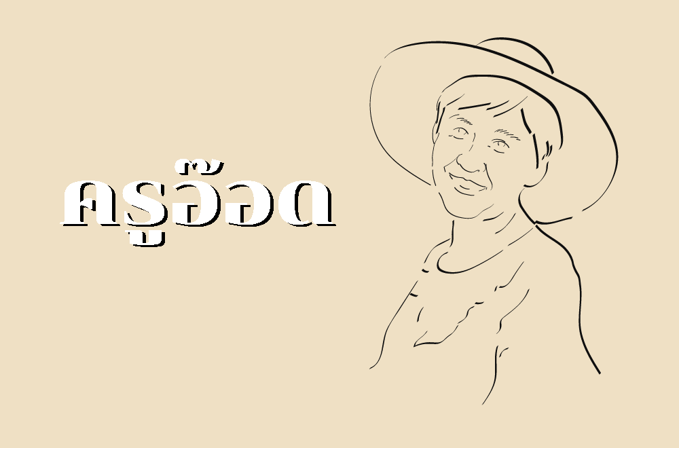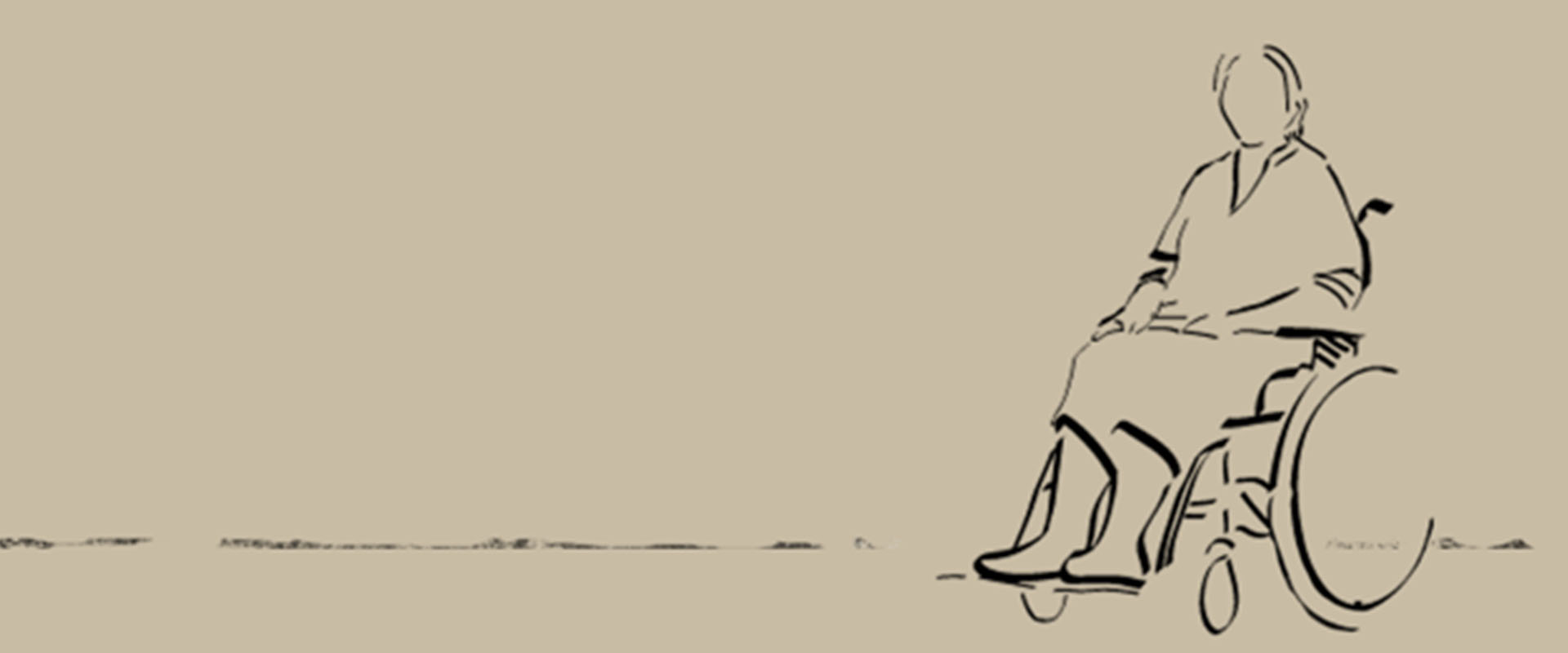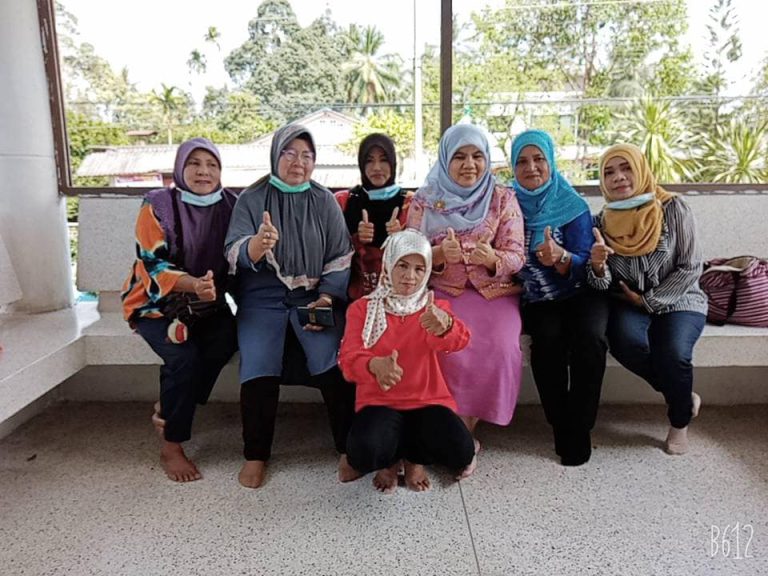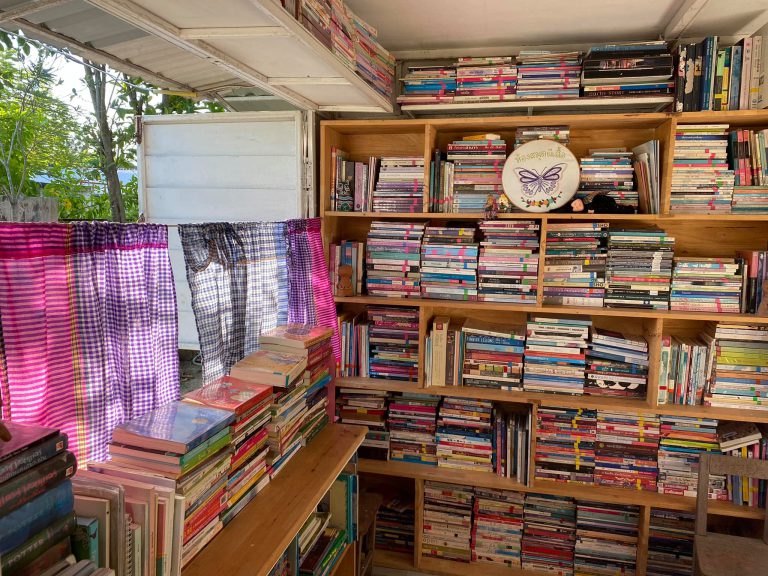Story: Kittin Likitparinya
The collective’s various activities — visiting patients in the hospital and the community, and distributing food and equipment — might seem like they are simply delivering supplies to patients and their families: run-of-the-mill social welfare. However, Phra Krodsada insists that “the collective isn’t merely engaged in social welfare work as everyone assumes, but is disseminating buddhist practice through the framework of community support and care. It embodies another form of dharmic practice that isn’t sitting and meditating, but is involved in bringing relief to others. The patients are like the dharma, and visiting them is a form of practice that is
What would you do if you had to choose between a life-changing appointment — a university interview, a 20th year anniversary meeting with a business client, an interview for your dream job — and accompanying your ailing mother to her doctor’s appointment?
Some people may be able to harden their hearts and choose the life-changing appointment, leaving their mother to fend for herself at the hospital. However, there may be no need to be in this dilemma in the first place, for nowadays, you have the option of going to that important meeting while your mother attends her doctor’s appointment with someone to take care of her.
New services such as “Take Care Mom Dad” are emerging to provide another alternative for those who often find themselves at a bitter crossroads. Wannawipa Malainuan or “Kru Od” reflects on how she started her hospital companion service in her interview:
“I take my mother to the hospital pretty often, and I’d sometimes see seniors who were there alone. They seemed lost and confused, unsure of where to go and what to do. When I went over to talk to them, they’d say yes, no one was with them — sometimes it was because no one was free, or something else. So I thought to myself — oh, it’d be nice if they had somebody with them”.

No Two Seniors Are Alike
One of the challenges of providing this service is that no two seniors are alike. Companions have to cater to a variety of medical conditions, account for each senior’s life experiences, and deal with various sensitive matters in senior care, such as bathroom needs and long waiting periods.
“Sometimes seniors are already dealing with their private frustrations, such as having to wait for a long time or using the bathroom. But the most difficult cases are seniors with mental disorders, who sometimes are unable to control themselves. I’ve even been punched in the face before.”
For Kru Od, the essence of dealing with such a diversity of seniors is to care for them as if they are one of her own elderly relatives.
“I’m already studying patient care, so I’m sort of familiar with how patients can feel. This is what I do — I tell myself that the patient before me is like my family, like one of my older relatives.”

Lessons Learnt From Accompanying Seniors to their Doctor’s Appointments
At present, Kru Od has been running her hospital companion service for close to a year (she began in the middle of 2018). Her experiences as a companion have given her many insights into different matters. For example, she observed that a senior’s emotional state tends to be connected to their living situation. Seniors who live at home (whose families may have had other commitments, and therefore called the service) are more likely to be in good humour, whereas seniors from assisted living facilities tend to not be as lively.
She also noticed that accompanying seniors to the hospital is a task that demands much more than other services, because one is required to interact with a person who is nearing the end of their life. Therefore, the essence of being a companion for seniors is in cherishing life. This realization imbued “[Kru Od’s] caregiving with more meaning than a regular service”. “No matter who it is, it is important to value their life,” she says.

How to Access the Hospital Companion Service for Seniors
Interested readers can reach out to Kru Od through her facebook page, ‘Take Care Mom Dad’, at www.facebook.com/TakeCareMomDad/. The price of the service is calculated from travel time and the length of the visit.
Once an arrangement has been made, Kru Od will pick up and drop off the patient, look after them, and take care of all communication with hospital staff until the senior reaches home.
“I stay with seniors throughout their time at the hospital. I take care of the logistics for their comfort and safety, and things like that. I’m there as a friend. I take care of transport as well.
“However, if the senior has any neurological or psychological disorders, another caregiver will also be needed. Sometimes, I won’t be able to look after them on my own; should I need to go talk to hospital staff, someone else should be with the senior.”
Advice for Those Interested in Starting Their Own “Hospital Companion Service for Seniors”
Though this service can be profitable enough to function as a supplementary source of income, anyone interested in providing this service must fundamentally understand that this is a service that will entangle them in the hardships — the suffering that comes with sickness and old age — of the seniors who need their service. Therefore, anyone interested in this line of work must have a spirit sown with the seeds of compassion and the desire to bring healing to those suffering.
In another respect, the nature of this service lends itself to the contemplation of old age and pain (from a Buddhist perspective, the two kinds of suffering tha are inevitable for all living beings on this earth ). Kru Od hints at this at one point in her interview:
“Every senior who uses my service is a teacher. They teach me what pain and old age actually look like.”
Finally, to anyone interested in this line of work, Kru Od leaves a short and simple message: “you must love what you do”.

Being a hospital companion for seniors won’t make you a lot of money, but if you do it from the heart, the rewards of compassion will definitely blossom in your spirit. At the very least, you’ll have had a part in alleviating the hardships of a senior looking for companionship.



